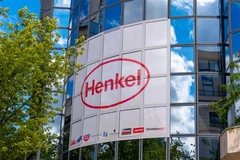Interpack 2023: Greiner’s injection molded rPET cups take center stage after technical breakthrough

01 May 2023 --- Greiner Packaging will showcase a new generation of injection molded recycled PET (rPET) cups at the Interpack trade show, which starts this week in Düsseldorf, Germany (May 4-10).
The Austrian packaging supplier says it has achieved a breakthrough in rPET cup production in cooperation with Engel, a manufacturer of injection molding machines, and mold maker Brink. Thin-walled injection molding cups, which were previously only possible using PP, can now be produced from rPET.
“In the intensive development process, we worked hard to find the right balance of material flow speed for rPET, which we managed thanks to great colleagues, their material and injection molding expertise and our cooperation partners,” Sebastian Diensthuber, global product group manager at Greiner, tells PackagingInsights.

“When developing the thin-walled, injection-molded cups made of PET, it was particularly important for us to develop a solution that was not only innovative but also able to withstand our customers’ industrial requirements.”
The supplier confirms that the lightweight cups are suitable for filling lines and sealable while boasting CO2e savings potential and circular economy credentials as a recycled and recyclable solution.
PET’s new potential
Until now, PET has mostly been used for thermoforming applications and injection-molded bottles and cans. Injection-molded cups with thin walls have been realized mainly with PP, but this plastic has not yet received a positive European Food Standards Authority opinion when mechanically recycled.
 Interpack 2023 will tackle big subjects like the circular economy, resource management, digital tech and product safety.Therefore, Greiner believes that the use of rPET in injection molding opens up new possibilities, especially for food applications. The company is already working with an array of big brands, like dairy company Yeo Valley Organic.
Interpack 2023 will tackle big subjects like the circular economy, resource management, digital tech and product safety.Therefore, Greiner believes that the use of rPET in injection molding opens up new possibilities, especially for food applications. The company is already working with an array of big brands, like dairy company Yeo Valley Organic.
The supplier indicates that injection-molded cups can now be offered in up to 100% rPET, which can provide up to four times fewer CO2e emissions compared to other materials.
Moreover, manufacturing the cups using the injection molding process ensures that the cup wall thickness is uniform, as the plastic is distributed evenly in the mold during the injection. This uniformity can help boost the top load and product quality and appearance.
The injection molded cups can be decorated with in-mold labeling. At FachPack 2021, we reported on Greiner’s cardboard-plastic cup recyclability innovation: The K3 r100 cup, which the company will present again at this year’s Interpack.
Reliable recyclate supply
The availability and affordability of recycled plastic have been industry-wide problems amid increasingly stringent recycled content legislation and other industries, like textiles and automotive, dipping into material supplies.
According to Diensthuber, there is currently an adequate rPET supply, but this could change due to new regulations requiring the increased use of recycled material in the future.
“To ensure steady material supply for its customers, Greiner purchased a Serbian rPET flakes producer last year to become independent of potential material shortages,” he says.
Meanwhile, the company aims to bump up its current recycled content proportion from 30%.
“It is our goal to increase the rPET ratio up to 100%,” Diensthuber tells us. “But the more recycled material we use, the greater attention we must pay to ensure a constant production process for optimum product quality, which, thanks to our material, injection molding and technical expertise, we will be able to manage.” Greiner’s K3 r100 cup is a cardboard-plastic combination delivering enhanced recyclability through an easy-to-detach tear-off system.
Greiner’s K3 r100 cup is a cardboard-plastic combination delivering enhanced recyclability through an easy-to-detach tear-off system.
Collaboration is key
Greiner also stresses that the collaborative process underpinning this project underlines the potential of cross-industry cooperation in the development of a circular economy for packaging.
“We are making a call to the whole industry to ‘join the circular revolution,’” continues Diensthuber.
“Especially regulations such as the European Packaging and Packaging Waste Directive have created dynamics that had a huge influence on product development processes, leading to sustainable innovations throughout the whole market.”
The supplier will also exhibit reusable packaging and other material-saving solutions at Interpack.
“Within the reuse sector, we will showcase reusable drinking cups, food containers and milk bottles. Also, we will present packaging solutions that use little material, such as our IML Lightweight Bucket,” says Diensthuber.
“Additionally, we will present environmentally sustainable packaging solutions for various markets, such as ketchup and sauces, ready meals, coffee and savory spreads.”
We recently spoke to Greiner’s new CEO, Beatrix Praeceptor, about the benefits of gender inclusivity in the historically male-dominated packaging industry.
By Joshua Poole











